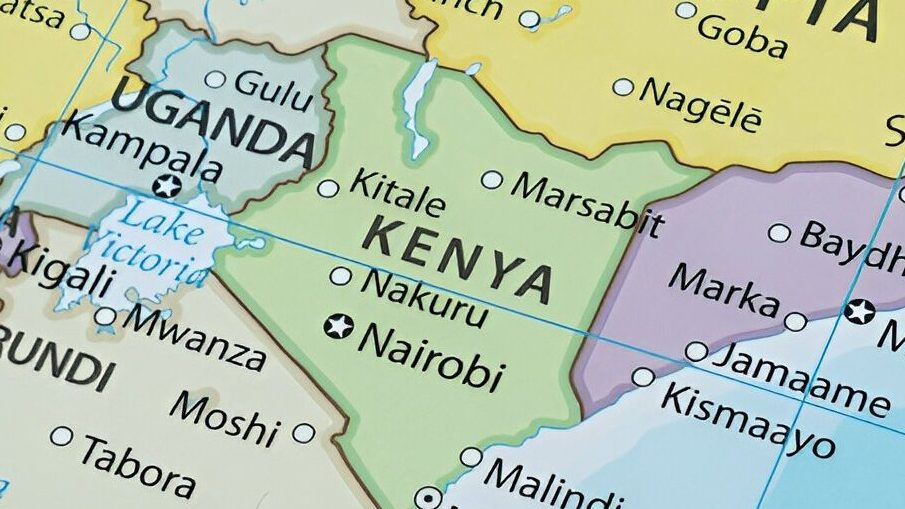In Kenya’s fast-evolving digital landscape, businesses are finding powerful new ways to connect with consumers by combining the reach of influencer marketing with the precision of artificial intelligence. This dynamic duo is reshaping how brands engage audiences, make data-driven decisions, and scale their impact. In this guide, we explore how leveraging AI and influencer marketing in Kenya can unlock real growth opportunities for businesses across Africa.
Introduction to AI and Influencer Marketing in Kenya
Kenya’s digital environment is evolving rapidly. As firms compete in a crowded market, two potent methods have surfaced as game-changers: Artificial Intelligence (AI) and influencer marketing in Kenya. When combined wisely, these methods can completely alter how Kenyan businesses interact with their audiences and drive sustainable growth.
Have you ever wondered how certain Kenyan brands appear everywhere at once, interacting perfectly with their target audience while offering customized experiences? The answer often lies in their strategic use of technology and human connections. Kenya, recognized as East Africa’s tech center, is uniquely positioned to benefit from these novel marketing strategies.
This guide explores how Kenyan companies—from startups to established enterprises—can leverage the power of AI and influencer marketing to accelerate growth, improve customer relations, and gain a competitive edge in the dynamic East African market.
The Current Business Climate in Kenya

Kenya’s economy continues to show notable resilience and innovation. With a GDP growth rate consistently outperforming many African nations, Kenya provides fertile ground for business expansion. The country’s vibrant entrepreneurial spirit has earned it the name “Silicon Savannah,” reflecting its position as a tech and innovation leader in East Africa.
Several factors make Kenya particularly suitable for AI and influencer marketing:
First, mobile phone use in Kenya exceeds 100%, with many Kenyans owning multiple devices. This widespread connectivity forms an excellent base for digital marketing campaigns. The success of M-Pesa has also created a population familiar with mobile technology and digital transactions.
Second, Kenya has a young, tech-savvy population. Approximately 75% of Kenyans are under 35, representing a demographic that’s not only tech-friendly but also highly influenced by digital content and social media personalities.
“The Kenyan consumer is becoming more sophisticated and expects brands to engage in authentic, personalized ways,” notes Catherine Muraga, Managing Director at Microsoft Africa Development Center in Nairobi. “Companies that recognize this shift and adapt accordingly are seeing remarkable results.”
However, competition is high. Both local businesses and multinational corporations are vying for consumer attention, making innovative marketing approaches not just beneficial but also necessary for survival and growth.
Understanding AI Technology in the Kenyan Context

AI Adoption Rates in Kenyan Businesses
AI might seem futuristic to some, but it’s already reshaping business operations across Kenya. While adoption rates vary by sector, recent surveys show that roughly 33% of medium to large businesses in Kenya have implemented some form of AI technology, with another 41% planning to implement it within the next two years.
The financial services sector leads in AI adoption, with telecommunications and e-commerce close behind. Smaller businesses have been slower to embrace AI, often citing cost concerns and a lack of technical knowledge as primary barriers.
Interestingly, when Kenyan businesses do embrace AI, they tend to see returns more quickly than global averages. This is partly because many Kenyan firms are implementing AI solutions that address specific, immediate challenges rather than engaging in exploratory projects.
Common AI Applications for Kenyan Companies
In the Kenyan business world, various AI applications have proved especially valuable:
Customer Service Automation: Chatbots and virtual assistants are helping Kenyan businesses provide 24/7 customer support at a fraction of the cost of traditional call centers. Companies like Safaricom have successfully deployed AI-powered customer service solutions that can handle inquiries in both English and Swahili.
Predictive Analytics: Forward-thinking Kenyan firms use AI to analyze customer data and predict purchasing behavior. This enables more targeted marketing efforts and inventory management. For example, Twiga Foods uses AI algorithms to predict demand for fresh produce, reducing waste and ensuring better prices for farmers.
Personalization Engines: E-commerce platforms in Kenya are increasingly using AI to deliver tailored shopping experiences. By analyzing browsing history and purchase patterns, these systems can recommend products with remarkable accuracy, boosting conversion rates.
The beauty of AI in the Kenyan context is its scalability. Solutions can be implemented incrementally, allowing even smaller businesses to benefit without overwhelming upfront investments.
The Rise of Influencer Marketing in Kenya
Social Media Penetration in Kenya
Social media has become deeply ingrained in Kenyan culture, creating the perfect setting for influencer marketing to thrive. As of 2025, Kenya has approximately 15 million active social media users, representing about 28% of the population—a figure that continues to grow rapidly.
Facebook remains the most used platform, with over 9 million Kenyan users. However, Instagram and TikTok are gaining traction quickly, particularly among younger demographics. WhatsApp, while mainly a messaging platform, also plays a key role in information sharing and community building.
What makes social media powerful in Kenya is its role as a trusted information source. Research suggests that Kenyans are more likely to trust information from social media connections than from traditional advertising, creating an ideal opportunity for authentic influencer partnerships.
Categories of Kenyan Influencers

The influencer landscape in Kenya is diverse and always changing. Several distinct categories have emerged:
Lifestyle and Entertainment Influencers: Personalities like Diana Marua and Bahati have enormous followings by sharing glimpses into their lives. These influencers generally have broad appeal but might not deliver the targeted reach of niche influencers.
Tech and Business Thought Leaders: Individuals like Mark Kaigwa and Ory Okolloh have built dedicated followings through their insights on technology, entrepreneurship, and innovation in Africa. They tend to have highly engaged, professional audiences.
Health and Wellness Advocates: With increased health consciousness among Kenyans, influencers focused on fitness, nutrition, and wellness are gaining prominence. Their audiences typically show high engagement and strong purchasing intent for related products.
Cultural and Traditional Voices: A unique aspect of the Kenyan influencer landscape is the emergence of influencers who celebrate traditional culture while embracing modernity. These influencers resonate deeply with audiences seeking authentic, culturally-grounded content.
Micro-Influencers vs. Celebrity Influencers
When planning an influencer strategy in Kenya, one important decision is whether to collaborate with celebrity influencers or micro-influencers. Each offers distinct advantages:
Celebrity influencers like Bien-Aimé Baraza or Huddah Monroe can deliver vast reach with a single post. However, this comes at a premium, often starting at KSh 100,000 per post for well-known personalities.
Micro-influencers (typically those with 5,000-50,000 followers) offer more modest reach but often provide higher engagement rates and greater authenticity. Many Kenyan businesses report conversion rates up to three times higher with micro-influencer campaigns compared to celebrity endorsements.
“What makes micro-influencers particularly effective in Kenya is their deep connection to specific communities,” explains James Mwangi, a digital marketing strategist in Nairobi. “When a trusted local voice recommends a product or service, it carries significantly more weight than a generic celebrity endorsement.”
The most strategic approach often involves a mix—using celebrity influencers for brand awareness and micro-influencers for driving conversion and building community loyalty.
Integration of AI with Influencer Marketing
AI-Powered Influencer Discovery
Finding the right influencers manually can be like searching for a needle in a haystack. This is where AI transforms the process for Kenyan businesses.
AI-powered Influencer Marketing platforms like Empowr.ai can analyze millions of social media profiles to identify influencers whose audience demographics, engagement patterns, and content style align perfectly with a brand’s objectives. These systems go beyond follower counts, examining factors like:
- Audience authenticity (filtering out influencers with fake followers)
- Content relevance and consistency
- Engagement quality (distinguishing meaningful interactions from simple likes)
- Previous brand partnerships and their performance
Sentiment and fit assessment
AI systems gauge public opinion of influencers by examining comments and activity, assisting brands in selecting those with favorable images. Fit evaluation assesses how closely an influencer’s brand and persona match the brand’s, leading to more organic partnerships.
Campaign process automation
AI systems simplify campaign procedures by automating tasks like communication, contract handling, content sign-off, and performance summaries. This minimizes manual work and expedites campaign implementation.
Performance monitoring and enhancement
AI-driven analytics offer immediate data on campaign metrics like return on investment, engagement, and sales effects. Brands can use these insights to fine-tune ongoing campaigns and guide future influencer strategies with data.
Content customization and creative assistance
AI helps generate innovative concepts and customize influencer content to connect more effectively with target audiences, boosting engagement and pertinence.
For Kenyan businesses with limited marketing teams, these AI tools greatly reduce the time and resources required to build effective influencer relationships. Platforms like Upfluence and HypeAuditor are increasingly being used by Kenyan marketing professionals, although local alternatives are also appearing.
FAQs
1. How much should a Kenyan small business budget for AI and influencer marketing?
For Kenyan SMEs, a starting budget of KSh 50,000-100,000 can work well with smart allocation. Think about spending 60% on influencer collaborations (concentrating on micro-influencers over major stars) and 40% on fundamental AI tools for analyzing audiences and monitoring performance. As you assess outcomes, you can boost investment in avenues demonstrating the best results..
2. Can AI and influencer marketing work for B2B companies in Kenya?
Absolutely! B2B firms in Kenya are achieving strong outcomes by collaborating with business experts and influencers focused on their industry. Artificial intelligence proves very useful in the B2B sector for tasks like lead assessment and customizing interactions during extended sales processes. Businesses such as Twiga Foods have effectively implemented this strategy for their B2B supply chain services.
3. How do we measure the ROI of our influencer marketing efforts?
Artificial intelligence has changed how we gauge return on investment for influencer promotions. Going past simple metrics like interaction rates, sophisticated attribution models can now follow a customer’s path from seeing an influencer’s content to making a purchase. Use special tracking links, discount codes, and pixel tracking to gather data at each stage of the customer’s experience. AI-driven analysis can then offer useful understandings about which influencer collaborations generate the most value based on your set goals.
4. What are the most common mistakes Kenyan businesses make when implementing these strategies?
Common mistakes often involve: selecting influencers only by their follower numbers, instead of focusing on audience fit; deploying AI tools without defined goals; restricting influencers’ creative input; and skimping on proper measurement methods. A major error is viewing AI and influencer marketing as separate, rather than integrated tactics that can mutually benefit one another.
5. How is AI and influencer marketing different in Kenya compared to Western markets?
Compared to many Western markets, influencer marketing in Kenya prioritizes community engagement and tangible benefits. Mobile-first approaches are key, given that the majority of Kenyan consumers use smartphones instead of computers. Cultural nuances are vital; content, jokes, and ideals that work well in the West might be ineffective or even inappropriate in Kenya. Lastly, price is a major consideration, so clearly showing value is vital for successful campaigns.
